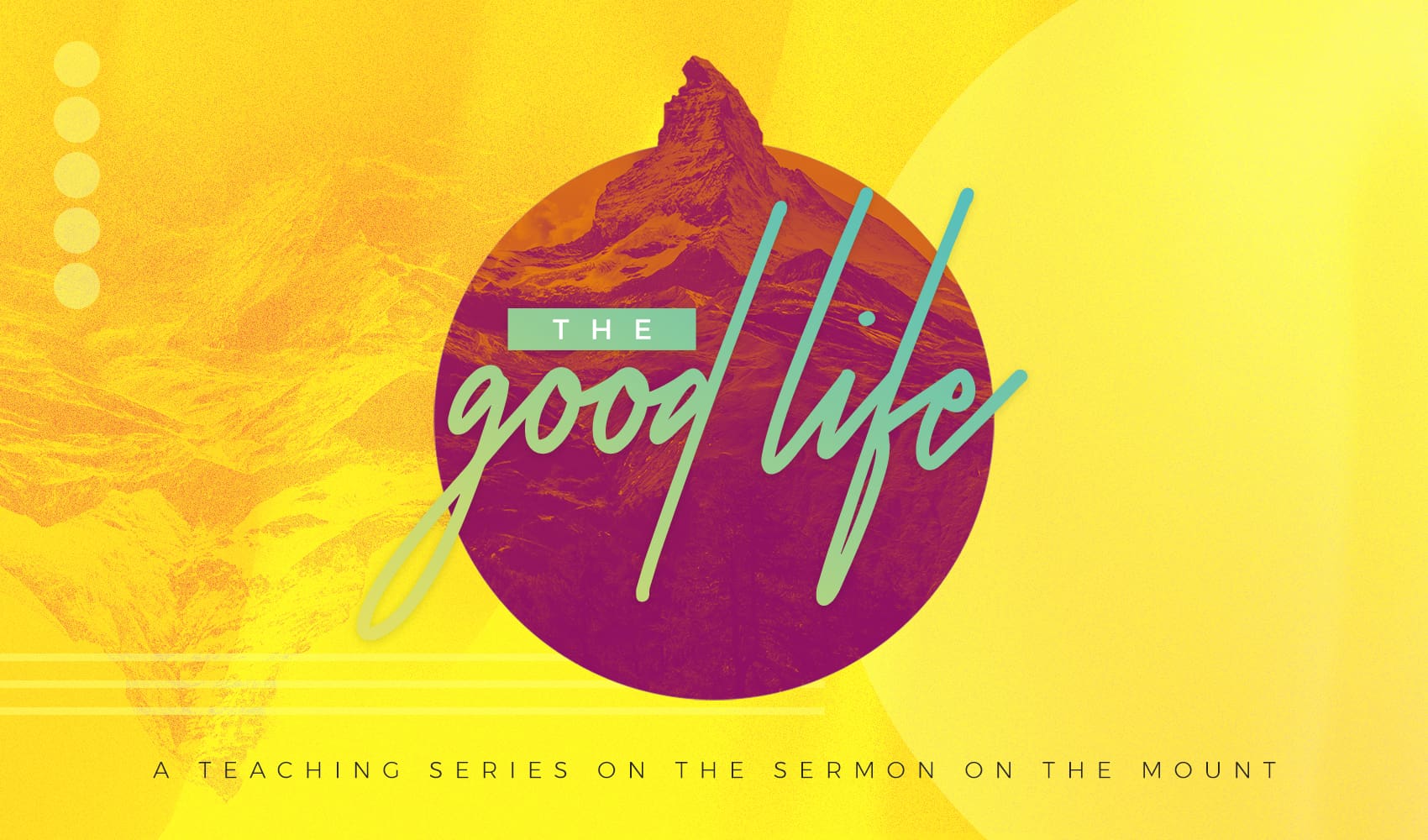Reimagine Your Role (Matthew 5:13-16)

Big Idea: Reimagine your role in the world. Live a dual life — do your regular things, but in such a way that people see the difference that Jesus makes in your life.
One of the best parts about being a kid is imagination. Children possess an extraordinary imagination. There’s no such thing as an ordinary day in the life of a child. From the outside, kids are doing ordinary things: getting up, eating breakfast, walking to school, watching TV, playing, taking a bath, going to bed. But inside the mind of that child, they are astronauts, scientists, princesses, ballerinas, firefighters, cowboys, doctors, and more.
No wonder kids get so tired!
The passage we have before us invites us to do the same. You are going to leave this place and do ordinary things. You are going to have dinner tonight. You will go to bed. Tomorrow you will get up and go to school or work. But Jesus invites you to reimagine your role. You are going to be doing ordinary things, the same things as everyone around you, but with an extraordinary extra role that may not be obvious at first.
If you were with us last week, we looked at an invitation that Jesus offers us on how to live the good life. You’re invited by Jesus to live the good life — a life that’s found in treasuring him above all else. Jesus is very concerned with our happiness. He described a group of people who don’t look like the world’s picture of success, but who treasure and value him so much that they’re doing well no matter what. They’ve based their happiness on something that can never be taken away, and so their happiness is bigger than any problems that come their way. Jesus looks at these people and says — and I’m paraphrasing — “Good on them! They’ve really discovered how to live!”
Today we’re looking at what these people look like as they live regular lives in the world. Jesus calls us to reimagine our roles in the world. On top of the regular things — raising kids, going to work, relaxing on evenings — there’s something else going on in our lives. Jesus says: Reimagine your role in the world. You’re not just a worker, a professional, a parent, whatever. You are so much more than that.
Salt and Light
So what are you? What’s your role in the world?
Two images: you are salt, and you are light. Okay, but what does this mean?
Salt
Salt is a fascinating image. In a world without refrigerators and freezers, salt was a preservative. It enhances the flavor of food. Sometimes food is so bland that it needs some salt to give it some flavor. A few years ago I attended a chef’s demo, and the chef admitted that despite the health concerns that he’s very liberal with his use of salt because things just taste better with a bit of salt.
Salt both preserves and enhances flavor. But there’s another use of salt that occurred to me recently as I’ve been reading the Bible. There’s a term that appears a few times in the Hebrew Scriptures: covenant of salt. For instance, Numbers 18:19 says:
All the holy contributions that the people of Israel present to the LORD I give to you, and to your sons and daughters with you, as a perpetual due. It is a covenant of salt forever before the LORD for you and for your offspring with you.
Covenant of salt. What does this mean? When two parties made a covenant or agreement with each other, they would often eat a meal together. They had a saying back then: “There is bread and salt between us,” meaning that the parties had shared a meal with each other. Salt was an important part of the sacrifices that the Hebrews offered God. “You shall not let the salt of the covenant with your God be missing from your grain offering; with all your offerings you shall offer salt” (Leviticus 2:13). Probably the biggest idea in the use of salt is permanence. God’s relationship with us is so sure, so established by covenant, that we never have to worry about it. He has entered into a covenant of salt with us, so we can rest easy because we’re secure.
So what does it mean that we’re the salt of the earth? All of the above. As we live out what we looked at last week — as we treasure Jesus above all things, so that we can endure even hard things with joy because we have something far more valuable that can never be taken away — we show that we’re in covenant relationship and table fellowship with God, and we therefore affect the world around us positively. People are better off when they’re around us, not because we’re good people, but because we’re in covenant relationship and table fellowship with God.
Here’s what this means. We become such covenant of salt people — in other words, we are on such good terms with God through Jesus Christ that we can say, “There’s bread and salt between us” — that it changes us. We enjoy the covenant blessings of relationship with God, and are so secure in the permanence of his love for us in Jesus Christ, that it changes us. We discover the truth of what Jesus did at the cross — that he has taken our sins and given us new life and hope — that we live the rest of our lives treasuring him above everything else.
It makes us a flourishing kind of people, like the people that Jesus describes in verses 2 to 12. And then, when we go into the world, we go into the world, it changes our very way of being so that we add flavor to the world and preserve it.
It’s like what we read in Acts 4:13. The big-wigs in Jerusalem called Peter and John to account. They said, “How dare you teach people about Jesus?” Peter and John were so fearless in their response that we read:
Now when they saw the boldness of Peter and John, and perceived that they were uneducated, common men, they were astonished. And they recognized that they had been with Jesus.
That’s what it looks like. We spend so much time with Jesus that it changes us. And as it changes us, it changes how we act in the world. People can see that we think and act differently. We are flourishing so much that it begins to flavor everything we do.
Light
Then there’s light. He gives two different images to capture our identity as light: a city on a hill, whose lights are visible in the darkness; and a small terra-cotta oil lamp which gives off light in a dark room. A light is meant to shine. It’s meant to illuminate the surrounding darkness.
We live in a world of almost constant light. Our issue isn't darkness. We have to buy blackout blinds to keep the light out of our condos so we can get some sleep. But if you go camping up north, and you get up in the middle of the night and go for a walk, you know what darkness is like. The smallest amount of light can make a huge difference. You wouldn’t want to try to do anything in the middle of the night if you didn’t have light.
When Jesus says we’re light, It brings to mind what Isaiah said hundreds of years earlier:
I am the LORD; I have called you in righteousness;
I will take you by the hand and keep you;
I will give you as a covenant for the people,
a light for the nations,
to open the eyes that are blind,
to bring out the prisoners from the dungeon,
from the prison those who sit in darkness.
(Isaiah 42:6-7)
God has acted in Jesus. He’s created a new covenant in which God brings grace and comfort to the entire world. Forgiveness is freely offered to all. This comfort and beauty will one day extend to the entire world. And right now, we get to enjoy all of its benefits, and by the way, we live show other people this amazing news. We live in such a way that people look at us and say, “The gospel has to be true! There’s no other explanation for your life other than that you’ve been with Jesus.”
G. Campbell Morgan says:
Jesus, looking out over the multitudes of His day, saw the corruption and the disintegration of life at every point. He saw its spoilation and because of His love of the multitudes, He knew the thing they needed most was salt in order that the corruption would be arrested. He saw them wrapped in gloom, sitting in darkness, groping amidst fogs and mists, and He knew that they needed, above everything else, light.
If that was true back in G. Campbell Morgan’s day, who lived a hundred years ago, it’s even truer today.
Jesus calls us to the good life. He calls us to flourish. He calls us to be so happy in our relationship with him that our entire lives are different. Don’t get me wrong: we won’t be perfect, but we’ll be different. And that difference will be noticeable to everyone around us.
- Don’t just be an employee. Show up every day working for God, not just for your boss. It will make you such a good employee that your boss will want 20 more just like you.
- Don’t just be a date. If you date, treat your dates with such respect and purity that they will say, “I have never dated anyone like you! I’ve never felt so valued. I’ve never felt so safe.” Date them in such a way that you have no shame and guilt later.
- Don’t just be a neighbor. Get to know the names of people all around you. Invite people over. Talk to people in the elevator. Remember birthdays. Push your garbage all the way through the chute so that the next neighbor doesn’t have to deal with it.
Let’s live so richly in our relationship with Jesus that it changes the very way we live in the world in every area of our lives. The world should be better because we’re here.
As we’re going to see in a minute, the church throughout history has often failed to do this. We can freely admit that there have been many bad things done in the name of Christ. But, for the sake of fairness and honesty, we should also list the following positive achievements done in the name of Christ:
- Eradicating slavery: As the Christian faith spread after the fall of Rome, the practice of slavery dwindled. Centuries later, when slavery reemerged, Christian advocates (like the Mennonites, the Quakers, and individuals like William Wilberforce) strongly opposed it.
- Opposing infanticide and infant exposure: Abandoning infants was a common Greco-Roman practice until Christians led reforms to outlaw it in the fourth century.
- Eliminating gladiatorial games: This brutal sport, which used the death of slaves to entertain the masses, was condemned by Christian activists.
- Building hospitals and hospices: Unlike most Greeks and Romans, the early Christians organized resources to care for the sick and dying.
- Elevating women's status/rights: Although women have been mistreated in nearly every culture, Jesus treated women with profound respect. Early Christians routinely protected women and children from neglect and abuse.
- Promoting higher education: Europe's and North America's great universities (The Sorbonne, Oxford, Harvard, Yale, and Princeton) were founded on Christian principles and trained pastors and missionaries.
- Producing great works of literature and philosophy: some of the most profound and beautiful written works have been authored by followers of Christ—Augustine, Dante, John Milton, J.R.R. Tolkien, Thomas Aquinas, Blaise Pascal, and Søren Kierkegaard, to name a few.
- Establishing modern science: Modern science is rooted in a biblical worldview that assumes an orderly and predictable universe. Many early scientists were also devout believers—Newton, Galileo, Copernicus, Kepler, Boyle, and many others.
- Composing brilliant music: Think of Bach, Handel, Mendelssohn, and Hayden.
- Advocating human rights and concern for the poor: these themes are deeply woven into the biblical idea that each person, made in the image of God, has inherent dignity and worth.
- Creating a worldwide, multi-ethnic community: most of the achievements listed above flowed from the Western world. But throughout history, lives and cultures around the globe have been transformed by the power of Christ. Today the Christian faith has grown into a beautiful mosaic of cultures, especially in the global south.
(adapted from Paul Copan, Is God a Moral Monster?)
The question arises: how will Liberty Village be a better community because we are here? What will our contribution to this community be? How will we live so that people say, “I don’t believe what they do, but would our community ever be in rough shape if they weren’t here!”
A Warning
Before we close, we have to look at the warning that Jesus gives.
You are the salt of the earth, but if salt has lost its taste, how shall its saltiness be restored? It is no longer good for anything except to be thrown out and trampled under people’s feet.
You are the light of the world. A city set on a hill cannot be hidden. Nor do people light a lamp and put it under a basket, but on a stand, and it gives light to all in the house. In the same way, let your light shine before others, so that they may see your good works and give glory to your Father who is in heaven. (Matthew 5:13-16)
The two warnings: don’t get so contaminated that your saltiness is insipid because of the impurities. Think of the salt that you find in the spring by the side of the road after the winter. It’s dirty. It’s mixed contaminated. It’s good for nothing. Don’t become the kind of Christ-follower who is so contaminated that you’re of no practical use in the world. You may as well not be a follower of Jesus in that case.
Also: don’t hide your light. Don’t hide your impact in the world. Don’t be a secret follower of Jesus Christ!
Keep your conduct among the Gentiles honorable, so that when they speak against you as evildoers, they may see your good deeds and glorify God on the day of visitation. (1 Peter 2:11-12)
Dual Lives
In short, live a dual life. Not a double life — sometimes a saint, sometimes a sinner. No, live a dual life — a student, an employee, an entrepreneur, a neighbor, and at the same time someone who’s flourishing in your relationship with Jesus so that you’re the best possible student, employee, entrepreneur, and neighbor.
Last week we saw that Jesus wants us to live the good life. He wants us to flourish so that we are happy, that we enjoy him so much that it can be said that we’re living the good life. This week we discovered that Jesus wants us to live the good life not just for our own sake, but for the sake of the world around us.
Little kids live these dual lives. They’re little kids, but they reimagine their role in the world. They’re not just kids; they’re astronauts, scientists, prime ministers, and more. In the same way, reimagine your role in the world. Live a dual life — do your regular things, but in such a way that people see the difference that Jesus makes in your life.





